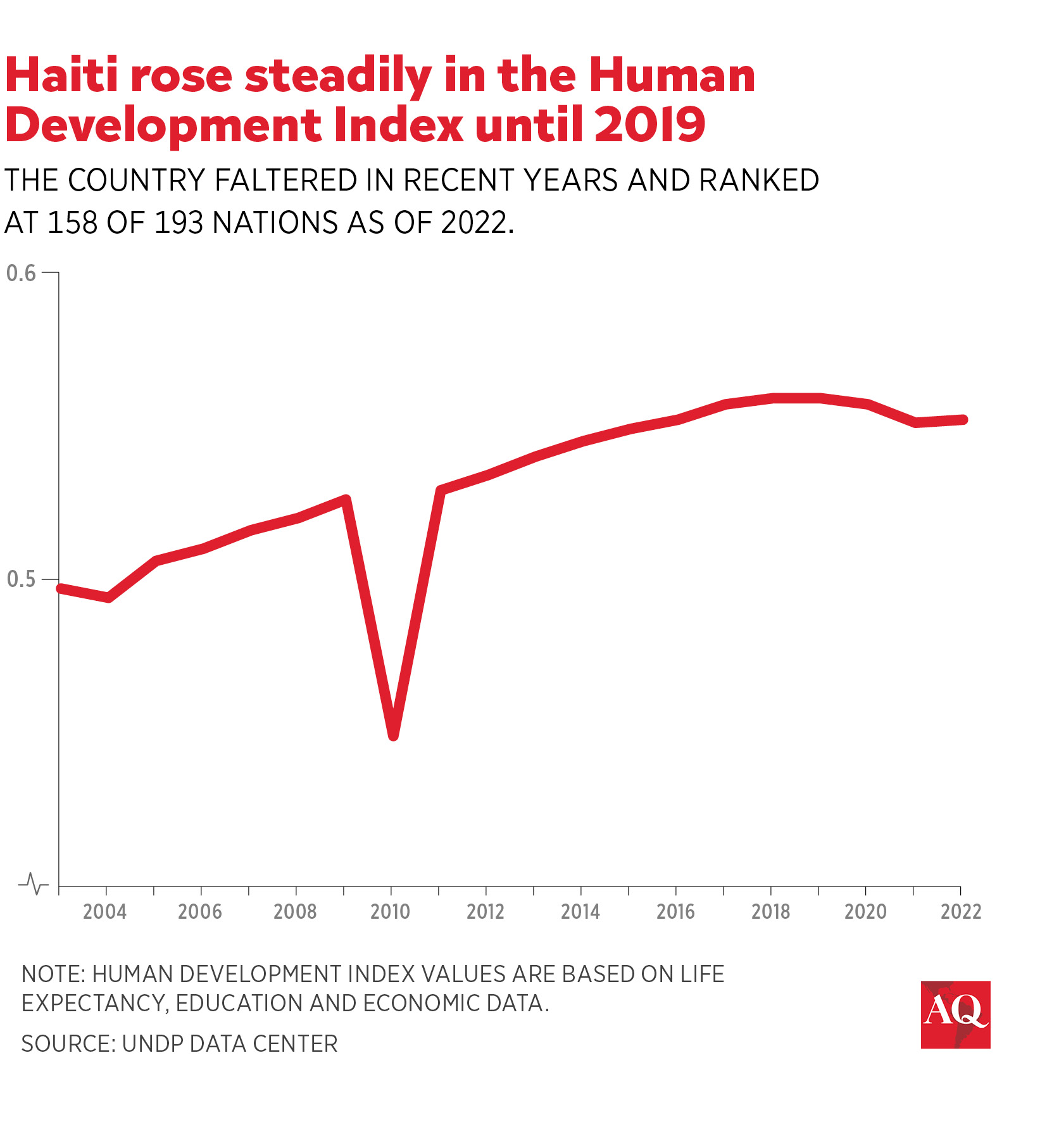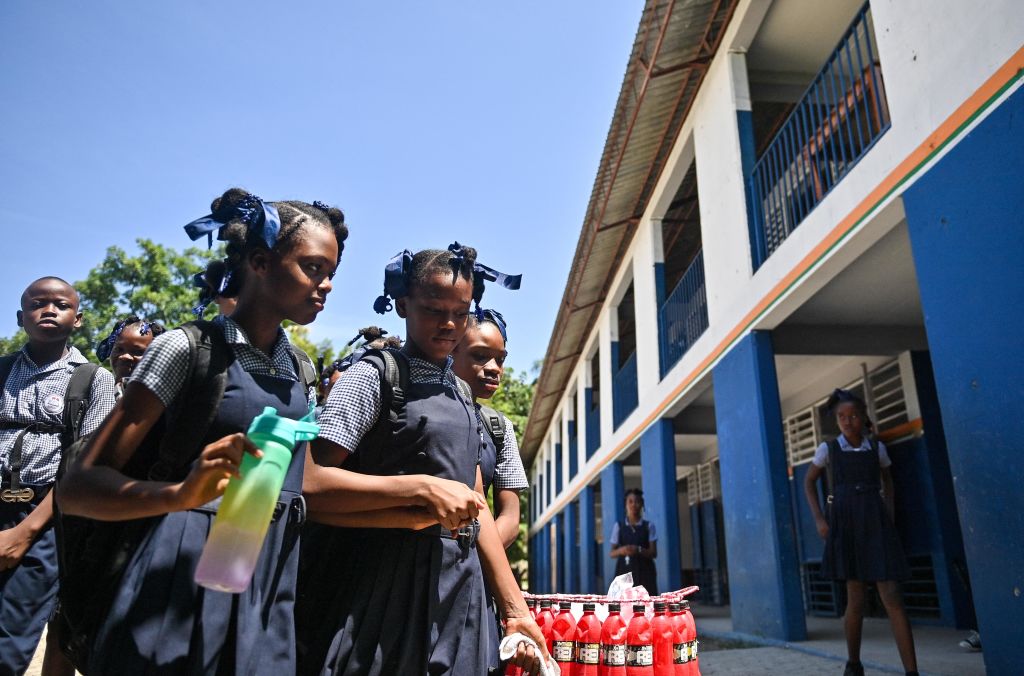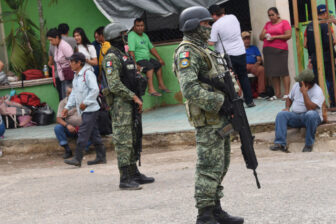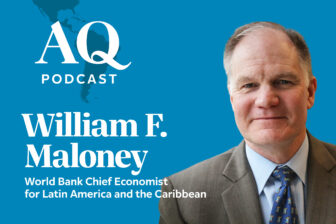PORT-AU-PRINCE—Haiti’s seemingly unsurmountable hardships are well known, but a different story awaits. Despite the disruptive gang violence of recent years that led to the virtual collapse of the state, the most impoverished country in the Western Hemisphere may take a different course as a new political transition is underway. Will its leaders seize this moment?
A governing council has been set up, and interim Prime Minister Garry Conille, a senior UN official who served as Prime Minister from 2011-2012, is determined to reestablish security and deliver credible elections next year, giving a new chance to the nation’s potential. While the international community is accompanying these efforts, it also needs a nation’s vision to ensure that any opportunities created don’t go to waste. Once a security foundation is laid, sustained investment in institutions, infrastructure and the country’s youth should be close behind.
The arrival of a Multinational Security Support Mission (MSS) days ago presents a historic opportunity to improve security and prevent further deterioration. A UNICEF report released this week found that more than 300,000 children have been displaced since March, meaning that one child is displaced every minute in this country as armed violence persists. In total, more than 580,000 people are homeless due to the protracted public safety crisis, as gangs still control most of the nation’s capital and its main access points.
Still, the MSS can’t fix the country alone. The Haitian National Police needs to work alongside them, but to do so effectively will require tools, technology, and training. They need a modern headquarters to coordinate operations, specialized vehicles, surveillance drones, and reliable communication. The international community is supporting the national police with funding, technical assistance, and strategic partnerships to complement their courage in the face of substantial challenges.
The new mission is the fourth large-scale foreign intervention since 1915, and greater coordination and monitoring should be implemented to avoid the pitfalls of the past. Long-term success will hinge on whether security forces can earn the trust of their communities. Spaces for dialogue between authorities and the communities they seek to secure will be fundamental to progress. For its part, the justice system should show it can deliver efficient and successful prosecutions. To accomplish this, sustained commitment to community engagement and judicial reform will be essential.
Once the violence is under control, Haiti’s transitional authorities should address corruption and deliver a fair and transparent election in 2025. This is the best, and perhaps only, way to rebuild faith in the country’s government and democracy. Conille’s administration has already announced a concrete anti-corruption strategy, emphasizing governance reforms to improve transparency, strengthen institutions and actively engage with civil society in oversight. This anti-graft commitment and extensive stakeholder involvement appear likely to improve public confidence in the government.
Inclusion is vital to the country’s future and the elections. Vote planners should engage with established political factions, civil society, and marginalized groups to foster a sense of national unity. This is not just about casting a ballot but about building a more cohesive society where everyone feels part of a greater good.

From transition to transformation
Haiti has two great sources of undeniable potential: its youth and geography. The country is a demographic powerhouse, with 54% of its population under 25 years old. If Haiti’s youth are provided with adequate education and job training programs, this will supercharge an already entrepreneurial culture that has created a vibrant informal economy. Several successful job training programs can be used as models. For instance, CodersTrust, a global EdTech platform, has rolled out coding boot camps in Kenya that equipped young people with in-demand digital skills and found them employment. Such skill-building programs with mentorship and job placement assistance could play a significant role in revitalizing youth employment.
Small businesses could flourish if granted access to finance, tech, and markets. Imagine a mobile app connecting Haitian farmers with agricultural drone companies. Farmers could access affordable drone-powered crop analysis and receive individualized advice, mirroring how Rwandan coffee growers used blockchain to secure better prices. This tech-driven approach could empower the country’s young, tech-savvy population and boost agricultural productivity. Haiti has a meager secondary completion rate, well below the region and the global average.

Equipping youth with digital skills and fostering tech startups can create new jobs and connect Haitian businesses to the global market, while a thriving e-commerce ecosystem propels economic growth. Similar initiatives are already taking root in Brazil’s favelas. G10 Bank, the first digital bank born within a favela, empowers residents, especially young entrepreneurs, with mobile banking and financial services, demonstrating the potential of fintech to bridge the economic gap and fuel local economies led by tech-savvy youth.
Haiti’s geostrategic position in the Caribbean can also be a game-changer. Strategic investments in deep-water ports alongside infrastructure and trade facilitation mechanisms could transform Haiti into a critical node in regional and global supply chains. This wouldn’t just boost Haiti’s economy; it would be a boon for the entire region.
The nation could also capitalize on its solar power capacity to empower rural communities, combat climate change, and reduce local dependence on fossil fuel imports. A large-scale solar power plant in the country’s so-called Central Plateau, co-funded by Haitians, private and other international partners, could be an idea that can ignite a new economic dawn. Such an initiative would provide reliable energy for homes and businesses and position Haiti as a sustainable leader and a destination for eco-conscious companies.
Hearing Haiti’s call
Effective governance is at the core of the path to prosperity. Transparency and inclusivity are essential for steering policies and implementing reforms that build national unity and economic dynamism.
Success stories from other nations offer valuable lessons. Haiti can reveal its true potential by embracing good governance, laying the foundation for security and peace, investing in youth and education, and pursuing strategic economic development.
The United Nations Development Program stands ready to support Haiti because we believe in its potential. Significant challenges are ahead, but they can be overcome. The nation is telling us, “Wi, Ayiti toujou kapab.” Yes, Haiti still can do it.









